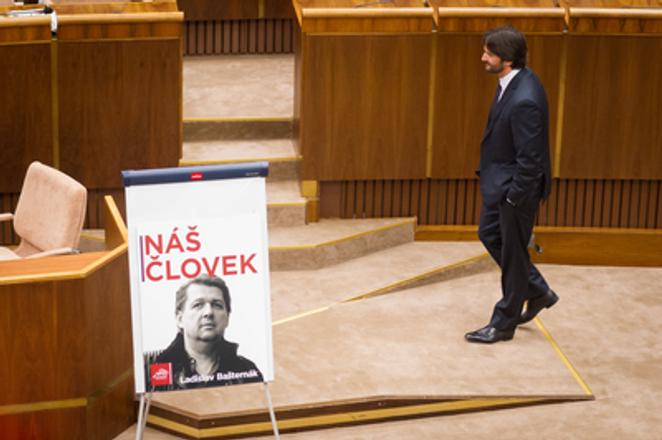The infamous Bašternák case takes a new turn after the controversial businessman, who owns the luxury flat that the prime minister rents, was accused of not paying taxes. Experts, however, note that the charges against him may easily be dropped.
The investigator of the financial police department of the National Criminal Agency (NAKA) on March 17 pressed charges against businessman Ladislav Bašternák for not paying taxes and insurance. The Webnoviny.sk website first broke the news on March 21.
The investigator claims that Bašternák, as the authorised representative of company BL-202, groundlessly claimed a VAT refund amounting to more than €1.97 million back in April 2012 for purchasing seven flats worth more than €11.849 million in the Five Star Residence complex. However, it paid only €1.456 million for them.
As a result, the company received a tax advantage and groundlessly claimed excessive VAT refunds amounting to €1.732 million, according to the investigator.
The police revealed that the flats were originally bought by the company Rent and Wash on March 8, 2012 for €1, while the purchasing agreement says those were the unfurnished flats. The contract also included the loan to the original owner, Viliam Gross, amounting to €1.2 million from the purchasing company. Subsequently, Rent and Wash signed a purchasing deal with BL-202 on March 19, 2012, amounting to nearly €12 million.
The police, therefore, say the claim that Bašternák’s company was selling flats with above-standard furnishings will not stand up, as it would have had only 11 days to reconstruct them, Webnoviny.sk wrote.
BL-202 sold one of the flats for €170,000 on May 4, 2012 via a real estate agency as unfurnished, according to the investigator. The remaining six flats were used to pay off the loan of €1.2 million provided by Patrik Ziman, based on an agreement on settling liabilities. Ziman then sold two of the flats in August 2012 for €395,000, and the remaining flats in September for €200,000.
The police launched an investigation of excessive VAT refunds in April 2016 when the NAKA investigator also began a criminal prosecution. The charges are based on testimonies of several witnesses and a file provided by the tax office.
Groundless?
Following the initial reports, the Sme daily noted that the word “groundless” will be key for the future development in the case. The police refused to provide more details on the charges for now and it is therefore not clear whether they are only charging Bašternák with not having paid taxes. If that is the case, the businessman could simply pay the unpaid tax plus a fine at any point during the prosecution, and he will be considered innocent, Sme wrote.
But if the businessman requested the tax refund “groundlessly”, it classifies as tax fraud and thus a crime, the daily wrote.
Fico is not moving
The turmoil around Bašternák has grown into the major scandal of the current government in its first year. There have been links alleged between Bašternák and Interior Minister Róbert Kaliňák.
Prime Minister Robert Fico has also been criticised for the fact that he lives in a flat in the residential complex Bonaparte that Bašternák owns. Following public pressure, Fico said he would find a new place, but has not do so yet. In February, he claimed that when Bašternák is accused, he will immediately leave the flat. But now he is not ready to do so.
“I am not 30 and I am no dromedary to move every two hours,” Fico said as quoted by Sme.
In the American report
The Bašternák case was among the issues that the US Department of State pointed out in its annual reporton the state of human rights in Slovakia 2016.
The report mentions the allegations that Kaliňák used his influence to stop the investigation of Bašternák for tax fraud. At first he publicly denied any connection to Bašternák, but after a bank officer leaked the bank records of the minister, it turned out that he received €260,000 from a company in which he purchased shares from the former co-owner - Bašternák, the report observes, adding that there have been suggestions it was “a kickback Kaliňák received for shielding Bašternák from criminal investigation”.
Kaliňák and Fico both faced no-confidence votes in the parliament last year due to the case.


 Bašternák on a poster stating "Our Man", with Interior Minister Robert Kaliňák approaching. (source: Sme)
Bašternák on a poster stating "Our Man", with Interior Minister Robert Kaliňák approaching. (source: Sme)